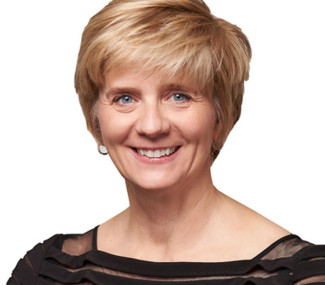RAPPORT // Take a Future-Focused Mindset and be a Change Maker in 2019


Do you get more reflective at year’s end?
Even though time is fundamentally the continual progress of existence, there is something about the end of the calendar year that inspires reflection. Every December brings a flood of publications documenting the year’s end. Reuters, New York Times, and CNN (to name a few) release special edition Year in Pictures, Who We Lost, and Major Events recaps to document the major milestones that affected people and shaped societies. Intentionally or unintentionally, we give mental space to tie up loose ends and consider the hopes, dreams, and failures of the past twelve months. There’s calm in reminiscing and fascination in remembering what we have forgotten in just a short period. As individuals, this process is part of how we translate our accomplishments, missed opportunities and regrets into a new or renewed commitment to “do better next year.”
Businesses produce visions and strategies for the year ahead, often based on the progress of the year passed. Most executives spend December going through the process of closing their financial books, assessing how well they executed their strategic plans, and conducting year-end performance reviews. Just as we do in our personal lives, we spend countless hours justifying how our businesses have spent energy striving for achievement.
As we come to the end of 2018, I am going to try something different. I’m going to skip reflecting on the past year. Instead, I am dedicating that precious time to focus forward into the future. I’m going to create opportunities to be a change maker and a disruptor.
Time feels like it is accelerating.
We spend so much time putting the pieces in place to enable the business to execute quick responses to urgent needs. We repeat exercises to organize our day, plan for the quarter, and create annual plans. With disruptions coming at us faster and bigger, much of this work seems insufficient or even irrelevant virtually the moment it’s deemed complete.
Combined, the rate of change and the constant impact of disruption prompts a sense that we must be in continuous reaction mode. Time has long been a scarce and valuable commodity. Today more than ever (and tomorrow more than today), that reality is certain to be even more pressured. If the world is moving so fast and business is accelerating, how can we have the time for forward-looking decision making in our companies?
We can’t slow the pace of change, but by peering farther into the future, we lay a longer runway. We gain time to consider various possible courses of action, assess the risks connected with each, consider potential alternate scenarios, and make informed, proactive decisions. We get out of reaction mode and position the organization to make decisions and take actions at the time and place of our choosing.
One of the best ways to gain a sense of control over time is to ask the hard questions. The specifics will vary as the context and organization evolve. Generally, however, the exercise of considering what is currently happening and what is likely to occur will help to reveal the global, organizational, and personal implications we will face. As you intentionally spend the time to think forward, assess, do the what-ifs and test hypotheses, you grow better informed and equipped to make decisions in the time and place of your choosing. The urgency of reactionary, real-time decision-making subsides, replaced by future-focused activities that are appropriate, controlled, and more likely to accomplish their purpose and desired outcomes.
The endeavor to ask the hard questions and look forward certainly makes sense as part of your year-end efforts. More impactful and useful, however, is to commit to adopting the methodology as a mindset. As you bring 2018 to a close, consider the lenses you used to understand, plan for, and act on challenges and opportunities. How often were you more nearsighted than able to see the long-term impacts of your environment and decisions? Ask yourself what you can do now to position yourself to operate with intentionality in the months to come. It’s an exercise that you can do on the organizational level – and the personal level – and while it won’t give you a gift of time this holiday season, it will provide you with a greater sense of control.
{{cta(‘5f5aaf5c-39c6-4763-8891-2cee93f8c351’)}}
- Categories
- Leadership
- Workforce of the Future


 About the Authors
About the Authors